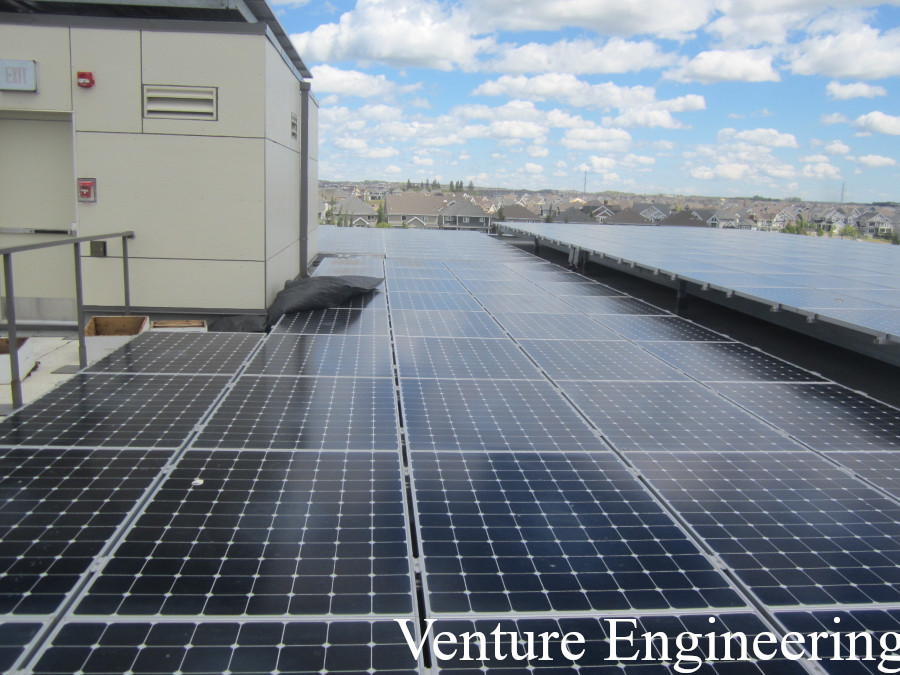What is a Building Condition Assessment (or Facility Condition Assessment)
A Building Condition Assessment (“BCA”) is the assessment, creation and submission of a report that identifies the current and potential deficiencies of a building, along with a suggested maintenance schedule. Many people will sometimes refer to a Building Condition Assessment, as a Facility Condition Assessment (“FCA”).
A BCA can be carried out for a number of reasons:
- To identify and plan for future (reserve) fund requirements; subsequently creating a realistic yet timely budget to achieve this.
- To assess a property for due diligence, insurance, mortgage or other financing or compliance purposes.
- To evaluate a new building against its spec components.
- To evaluate the fire safety systems or handicap accessibility against regulatory and accepted standards.
- To audit the energy consumption with recommended changes to integrate and improve sustainability.
- To evaluate the areas or systems requiring maintenance, renovation or replacement with a level of priority.
- Ultimately, to increase the life of a building and simultaneously protect an owner’s asset.
The Due Diligence Process of Assessing Building Condition
Whether for a real estate transaction concerning a building or for its maintenance, for its re-financing, an owner’s asset and capital management, or at the request of a government authority, structural due diligence is both informative and essential as a way of identifying actual or potential risk exposure. A Building Condition Assessment (“BCA”) is a structural reporting tool that is within Venture Engineering’s portfolio and it is conducted so as to identify and evaluate structural issues that can impact the value of an asset in the short, medium and long term.

How does a BCA Evaluate the Condition of a Building?
The main purpose of a BCA is to evaluate the condition of the following components:
- Building Envelope: Including roofing materials, exterior finishes, doors, windows, stairs and steps.
- Structural Systems: Including the foundation, structural framing of walls, columns, roof and intermediate floors.
- Mechanical and Electrical Systems: Such as the heating, air conditioning, plumbing and ventilation systems, along with their estimated remaining lifespan.
- Roofing Systems: A through assessment of the roof condition.
- Interior Building Components: Such as the completion and maintenance of interior finishes whether for common areas or tenant areas.
- Overall Building Site and Grounds: Including the maintenance of the pavement, sidewalks, irrigation, site drainage, baloncies and other exterior amenities.
Upon evaluation, the assessment report will advise whether repairs, replacements and/or renovations are suggested in the short, medium and long term, with a level of prioritization and estimated cost associated with each line item. This report proves useful in real estate negotiations, financing conversations or for conversations amongst co-owners or government agencies.
What is an Asset Condition Assessment?
A BCA conducted by Venture Engineering is systematic and methodical; being comprised of two main steps:
- The Site Inspection: A Venture Engineering structural expert visits the physical site and building to capture photographs, take notes, gather and document interviews conducted with the owner, property manager and tenants, along with the collection of the building’s drawings.
- Analysis, Maintenance Estimation and Report Submission: Upon gathering the relevant inputs, the expert can summarize the current state of the building along with any findings, report on the lifespan of current systems existing within the structure, and finally, estimate the maintenance schedule in the short, medium and long term while assigning approximate costs and prioritization.
Cost and Time frame of a Facility Condition Assessment
Choosing your BCA provider is an involved decision and it is advised to make the decision deliberately. Level of experience, professional judgement and trusted reputation can all help to put an owner or potential owner’s mind at ease.
On average, a BCA conducted by Venture Engineering is estimated to cost between $3,500 to $6,000 and sometimes more. Inputs that affect our pricing include:
- The Structural Assessor: Our clients value the competence, experience and qualifications associated with Venture Engineering. Leading financial lenders typically accept BCA reports certified by qualified structural engineers, and Venture Engineering is the provider of choice for many institutions and account managers.
- The Systems Being Evaluated: Depending on the scope of the systems that a BCA requires, Venture Engineering may engage experts from our trusted extended network to provide specific inputs and recommendations required for the completion of the BCA report and fund planning.
- Number of Buildings to Evaluate and the Size of Site: A portfolio of buildings and its site size may have an impact on pricing due to the time and depth required to conduct the assessment.
- Accessibility of the Site: If travel is required to access the site, associated costs may be charged accordingly.
How is a BCA helpful with a Building Maintenance Schedule?
A BCA is commonly weaved in to a property’s maintenance strategy as required by the property owner, manager, lender, board of directors or a governing body. It can be imperative and helpful in the early diligence steps of a real estate transaction and can be used to influence and guide negotiations.
Once the BCA is complete, it should be updated on a regular basis of 3-5 years.
What is a Reserve Fund Study
A reserve fund study realistically estimates and subsequently allocates money for a rainy (or in Alberta, snowy) day in the future wherein major structural repairs or system replacements may be required. Responsible and diligent, it accounts for building deterioration, usage, and normal material lifespans.
A reserve fund study is a legal requirement in nearly every Canadian province and territory, required by most co-ownership boards, and fundamentally aids in the protection of one’s investment.